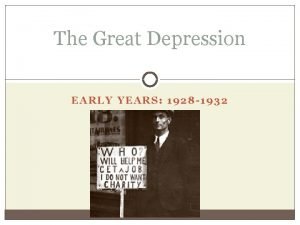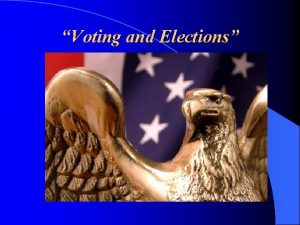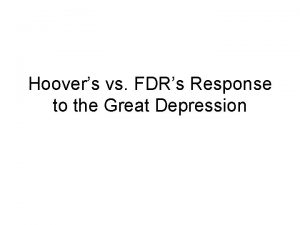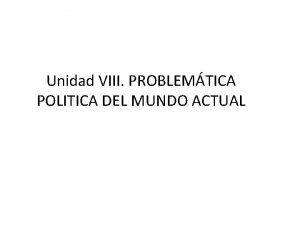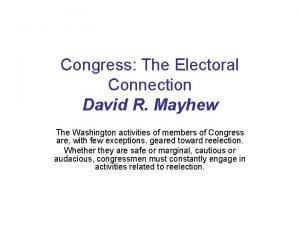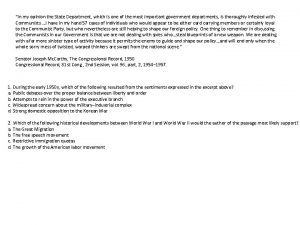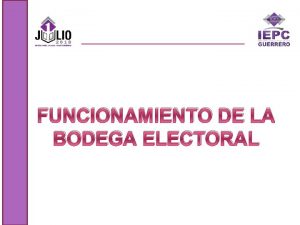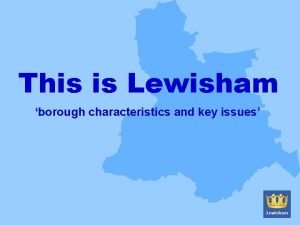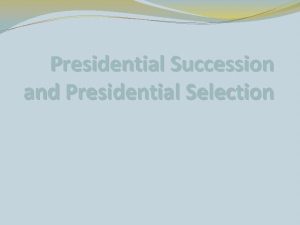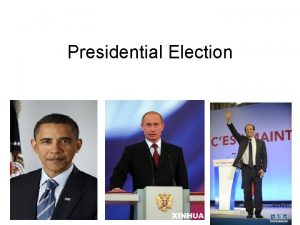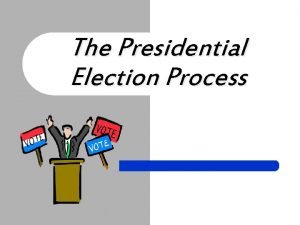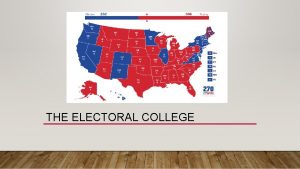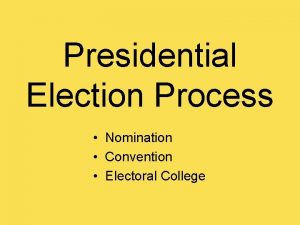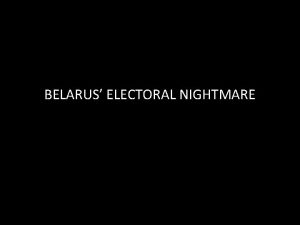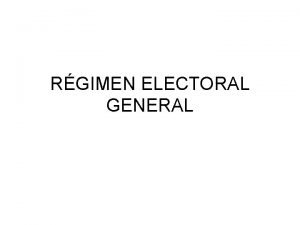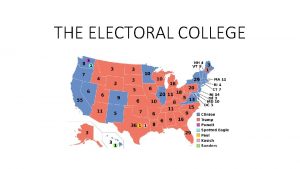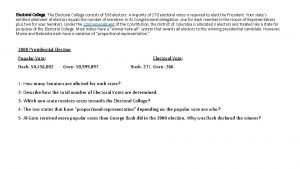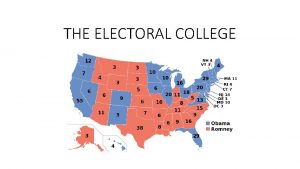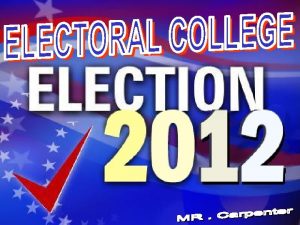Electoral College The presidential election is held every














- Slides: 14

Electoral College • The presidential election is held every four years on the Tuesday after the first Monday in November • When you vote for your candidate, you actually vote for your candidate’s “electors”

• The Electoral College consists of 538 electors – 270 electoral votes are required to win the presidency


• Each candidate running has his or her own group of “electors” chosen by the candidate’s political party • The electors: – Chosen by their political party in recognition for their service and dedication to their political party

• The winning candidate in each state (except Nebraska and Maine) is awarded all the state’s electors

• No constitutional provision or federal law requires electors to vote according to the results of the popular vote in their states – There are some state restrictions/punishments, however – Throughout history, more than 99% of electors have voted as pledged

• After the presidential election, each state governor prepares a “Certificate of Ascertainment” listing the winning presidential candidate and the electors that will represent the state – Certificates are sent to Congress and National Archives


• Electors meet the first Monday after the second Wednesday in December after the presidential election in their respective states – They cast their votes for president and vice president

• Early January of the year following the electors meeting, Congress officially counts the electoral votes – The Vice President (as President of the Senate) formally announces the vote – New President is elected January 20 th

Why This System? • 1. It puts a buffer between the population and the selection of a President – Founding Fathers were afraid of manipulation of public opinion

• 2. It is a compromise made by early Founders to satisfy the smaller states – Each state has the same number of electoral votes as they have representatives in Congress

• Changing the Electoral College system would take a constitutional amendment ratified by ¾ of the states • It is possible in the future, that there could be a change to the “winner take all” mentality 48 states follow

Close Elections 1800 (John Adams v. Thomas Jefferson) 1824 (John Q. Adams v. Andrew Jackson) 1876 (Rutherford Hayes v. Samuel Tilden) 1888 (Grover Cleveland v. Benjamin Harrison) • 1960 (Richard Nixon v. John F. Kennedy) • 2000 (Al Gore and George Bush) • •
 1932 presidential election
1932 presidential election Brainpop voting
Brainpop voting 1932 presidential election
1932 presidential election Electoral college changes
Electoral college changes Electoral college compromise 1787
Electoral college compromise 1787 Fbla-pbl week is held each year during the month of
Fbla-pbl week is held each year during the month of Materia electoral
Materia electoral Hoover v. fdr: responses to the great depression
Hoover v. fdr: responses to the great depression Geografía electoral
Geografía electoral Electoral connection definition
Electoral connection definition 1992 electoral map
1992 electoral map The 1964 electoral map above illustrates the
The 1964 electoral map above illustrates the Ipeeg
Ipeeg Lewisham electoral roll
Lewisham electoral roll Cuerpo electoral significado
Cuerpo electoral significado
